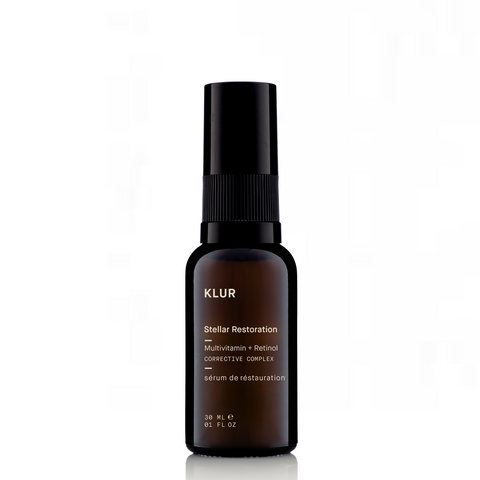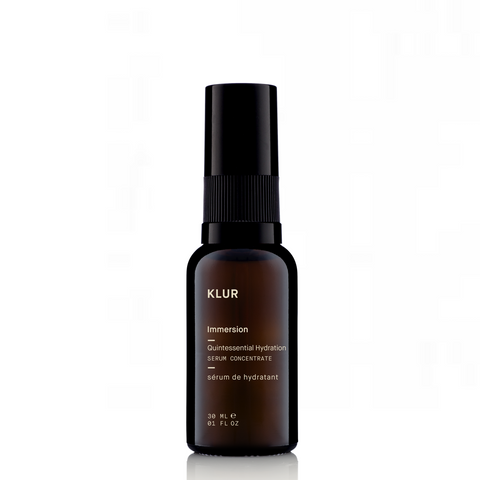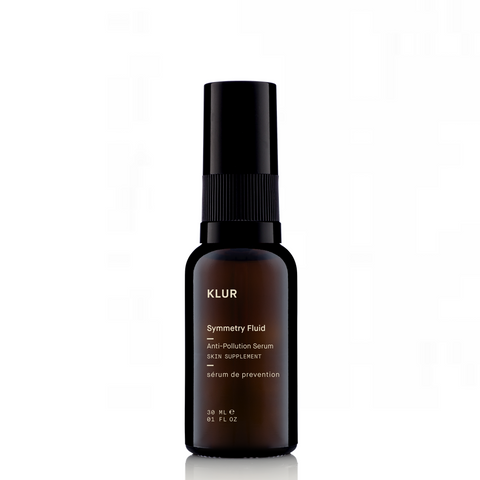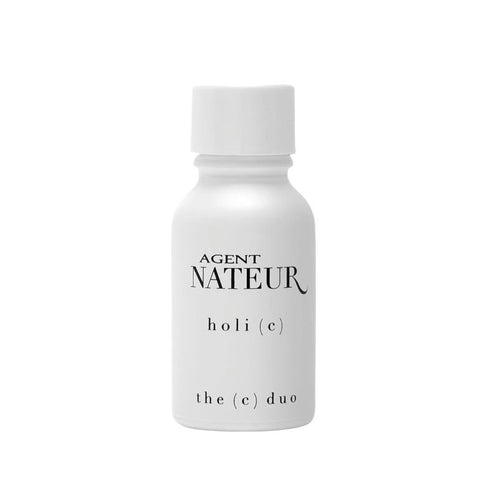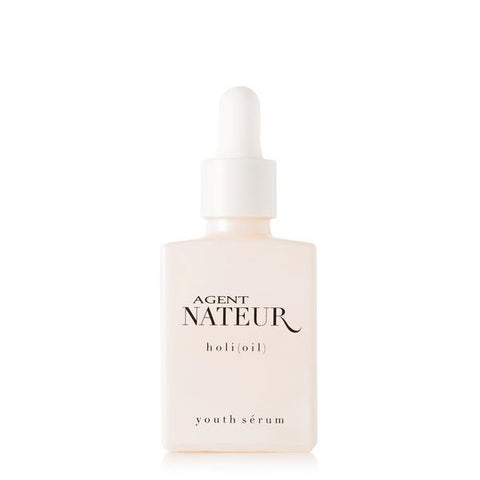Everything About Vitamin C: Skin Benefits, Types and Myths
September 24, 2024
Using vitamin C in the morning and vitamin A in the evening is a recommended skincare routine. Indeed, not only is vitamin C an essential skincare ingredient for healthy skin, it also provides a wide range of skincare benefits, making it a skincare ingredient recommended by all dermatologists
However, there are still many misconceptions about vitamin C in skin care. Whilst, many people have avoided vitamin C products altogether since experiencing sensitivity, redness, peeling, and stinging due to choosing vitamin C products that were not suitable for their skin.
Today, we will explain in detail the multiple skincare benefits of vitamin C, the different types of vitamin C used in skincare products, and address various myths related to using vitamin C for the skin.
|Fights Free Radicals
When an apple is cut, oxygen is introduced into the plant tissue. The phenolase enzymes on the top then rapidly oxidise, form melanin and release free radicals. After a while, because of the chain reaction that the free radicals set off, the browning would extend from the surface, which is exposed to oxygen, to the whole apple.
Now, our bodies are more complex than an apple, so the harms free radicals can do to our bodies are much more extensive, and are in fact the main cause of aging.
On average, people are exposed to up to 300,000 free radicals daily. These free radicals, originating from factors such as UV rays, pollution, dust, pesticides, alcohol, smoking, and food, accumulate in the deep layers of the skin that are invisible to the naked eye. However, they gradually slow down and weaken our skin's natural regeneration process, leading to chronic inflammation, damage to skin DNA, and breakdown of collagen and elastin in the skin. Ultimately, this can result in dryness, dullness, loss of elasticity, wrinkles, sagging, hyperpigmentation, redness, itching, and even conditions like eczema, rosacea, and psoriasis.
Vitamin C is a potent antioxidant that can neutralize free radicals and contribute to the skin's natural regeneration process. It helps repair damaged skin cells, keep the skin in a healthy state and reduce the various issues caused by free radicals as mentioned above.
Product Recommendation
AGENT NATEUR
holi(lift) Ageless Lifting and Firming Serum <- Click to Shop
|Stimulates Collagen Synthesis
Collagen and elastin are naturally present in the skin and contribute to maintaining a plump, firm, and wrinkle-free appearance. However, collagen loss occurs at a rate of approximately 1.5% per year after the age of 25, while elastin diminishes by about 1% per year starting at the age of 20. As collagen and elastin deplete, aging signs such as wrinkles, fine lines, sagging skin, and loss of elasticity gradually appear.
The synthesis of collagen requires two enzymes: prolyl hydroxylase, which stabilizes the collagen molecule, and lysyl hydroxylase, which provides structural strength to collagen. Vitamin C acts as an essential co-factor for these two enzymes, aids in the normal synthesis of collagen, and increases collagen production in the skin.
Research also indicates that the use of vitamin C skincare products helps promote the production of elastin in the skin, thereby reducing, slowing down, and preventing the aforementioned signs of skin aging.
Product Recommendation
KLUR
Stellar Restoration Corrective Complex <- Click to Shop
|Brightens, Fades Hyperpigmentation
Melanin essentially, is a substance that protects the skin. However, factors such as UV radiation, free radicals, stress, acne, squeezing blackheads, excessive cleansing, friction (including using scrubs, cleansing brushes, rubbing towels against the skin, etc.), abd hormonal fluctuations (such as pregnancy or taking birth control pills), can cause inflammation in the skin. When inflammation occurs, the skin sends signals to the melanocytes to produce more melanin than usual to protect the skin. Over time, this accumulation leads to visible pigmentation, acne marks, and dull, yellowish skin tone.
Vitamin C can inhibit melanin production through the following mechanisms, thereby improving, reducing, and preventing pigmentation while promoting even skin tone:
- Tyrosinase is a key enzyme involved in melanin synthesis in the skin. Research shows that vitamin C can inhibit the activity of tyrosinase, reducing the conversion of tyrosine into melanin. This helps prevent excessive melanin production, which in turn, fades hyperpigmentation and brightens skin.
- Free radicals exacerbate oxidative stress, which stimulates melanin production and contributes to the formation of pigmentation. As a potent antioxidant, vitamin C can reduce oxidative stress, thus helping to prevent excessive melanin production and pigmentation.
- UV radiation triggers the skin's defense mechanisms, which stimulates melanin production and can cause excessive melanin deposition and thus pigmentation. Vitamin C can protect the skin's DNA from UV damage and reduce the signals that stimulate melanin production, thereby helping to promote even skin tone, as well as improve, reduce, and prevent the formation of pigmentation.
Product Recommendation
KLUR
Brilliant Light Multi-Correctional Repair Serum <- Click to Shop
|Strengthen the Skin Barrier, Improve Moisture Retention
To maintain hydrated skin, a healthy skin barrier and the skin's water-retention function being at optimal level are crucial. Vitamin C can strengthen the skin barrier and water-retention mechanism, thereby reducing water loss through the following ways:
- The skin barrier is formed by various types of lipids, which together create an impermeable protective barrier to prevent the invasion of bacteria, allergens, pollutants, and water loss due to evaporation. Vitamin C helps promote the synthesis of natural squalene, which is essential for the formation of the skin barrier, thereby helping to strengthen the skin barrier and preventing water loss.
- On the other hand, natural moisturizing factors (NMFs), including hyaluronic acid, are substances naturally present in the skin that can attract and retain hydration. Vitamin C has been shown to stimulate the production of these NMFs, helping the skin remain hydrated.
- Environmental factors such as pollution and UV radiation can lead to the formation of free radicals, which can disrupt the health of the skin barrier. As a potent antioxidant, vitamin C helps maintain the integrity of the skin barrier by reducing oxidative damage, thereby reducing and preventing water loss.
Product Recommendation
Agent Nateur
holi(bright) Resurface Glass Face Mask <- Click to Shop
|Promote Wound Healing
Healthy wound healing can reduce the risk of inflammation, infection, and scarring. Research has found that a lack of vitamin C can prolong wound healing time, and there are four reasons for this:
- Vitamin C enhances the function of immune cells such as neutrophils and macrophages. These cells play a crucial role not only in clearing debris and pathogens within the wound but also in enhancing the immune response, thereby preventing infection and promoting the wound healing process.
- Collagen is essential for the formation of new tissue and accelerating the wound healing process. Vitamin C helps promote collagen synthesis and therefore plays a key role in the wound healing process.
- Vitamin C not only promotes collagen synthesis but also contributes to the cross-linking of collagen molecules during the wound healing process. Cross-linking refers to the bonding between collagen molecules, which provide stability and strength to the new tissue at the wound site. This process helps improve the tensile strength of the wound and can reduce scar formation.
- Environmental factors such as UV radiation and pollution can lead to the formation of free radicals, which can hinder wound healing due to oxidative stress. Vitamin C can neutralize free radicals, as well as reduce oxidative damage and inflammation at the wound site, thereby creating an environment conducive to wound healing.
Product Recommendation
KLUR
Immersion Serum Concentrate <- Click to Shop
|Reduce Inflammation
There are many causes of skin inflammation. When the skin experiences chronic inflammation, not only does it exhibit signs such as redness, itching, sensitivity, and acne, but can also trigger conditions like eczema, rosacea, and psoriasis.
Research indicates that vitamin C can exert anti-inflammatory effects through the following pathways, thereby alleviating skin inflammation issues:
- Studies have shown that vitamin C can inhibit the production and release of inflammatory mediators such as cytokines, prostaglandins, and leukotrienes. By reducing the generation of these factors, inflammatory reactions such as redness and pain can be suppressed.
- Vitamin C helps regulate the activity of immune cells and cytokines, thereby promoting an anti-inflammatory immune response and reducing the occurrence of chronic inflammation.
- A healthy and intact skin barrier helps prevent bacteria, irritants, and allergens that may induce inflammation from entering the skin. Vitamin C can strengthen the skin barrier, thereby reducing the risk of skin inflammation and enhancing the skin's natural defense against inflammatory stimuli.
- Skin inflammation increases oxidative stress, further exacerbating the inflammatory response. The antioxidant properties of vitamin C help neutralize free radicals and reduce oxidative stress, thereby alleviating inflammatory reactions.
Product Recommendation
KLUR
Symmetry Fluid Skin Supplement Concentrate <- Click to Shop
Many products prominently promote themselves as vitamin C products, but they often fail to provide detailed information about the specific type of vitamin C used in the formulation (although it is usually listed on the ingredient list). In fact, vitamin C is not a single entity but exists in various forms, each with different effects on the skin.
The following are five commonly used forms of vitamin C in skincare products:
|L'Ascorbic Acid or Pure Vitamin C (Ascorbic Acid)
LAscorbic Acid or Pure Vitamin C (ascorbic acid) are commonly used ingredients in vitamin C products due to their high effectiveness. However, the problem is that they need to be in an extremely acidic pH of 3.5 or below to maintain stability and exert their effects, yet research has shown that our skin is healthiest at a pH of 4.7.
In other words, using the highly acidic L'Ascorbic Acid or Pure Vitamin C products twice daily not only easily irritates the skin, leading to sensitivity, redness, and increased blackheads, but can also disrupt the skin's lipid barrier and the delicate balance of the skin microbiome, which can trigger major breakouts and inflammations!
Furthermore, light, oxygen, and water can rapidly oxidize and render L'Ascorbic Acid or Pure Vitamin C ineffective. This process of oxidization is evident when the color of the product starts turning, which can range from light orange, orange, dark yellow, to even brown. In fact, this problem can even occur before the product is opened! Now, some skincare brands would actually add colorants to their formulations just so the color would remain yellow to conceal the fact that the product has oxidized and lost its efficacy.
Now, you can simply bin an oxidized product, but you cannot deal with other problems L’Ascorbic Acid has as easily. First of all, it does not only oxidize in the bottle, but actually also on the skin, leading to more blackheads. This is not it, however. Both L’Asocrbic Acid and Pure Vitamin C eventually oxidises to erythrulose, the same ingredient in fake tans which reacts with proteins in the dead stratum corneum to produce brown compounds called melanoidins that do not come off until the dead cells shred naturally. This is called a Maillard reaction, like the caramelizing reaction that happens when baked goods turn brown with heat. In other words, instead of brightening the skin, you may very well be tanning your skin. And worse this Malliard reaction actually generates free radicals and could accelerate sun and DNA damages, which is what you want to avoid by using Vitamin C products in the first place!
It is also worthy to note that most L’Ascorbic Acid is derived from GMO corn starch, corn sugar or rich starch, which can potentially have a negative impact on the skin.
In the past, we have observed that many customers troubled by acne issues had a habit of using L-Ascorbic Acid or pure vitamin C products. When we advised them to stop using these products, their acne problems disappeared pretty much immediately!
|Sodium Ascorbyl Phosphate
Sodium Ascorbyl Phosphate (SAP) is a highly stable form of vitamin C that does not oxidize easily when exposed to light, oxygen, or water. Although it may not be as potent as L'Ascorbic Acid or pure vitamin C, SAP offers the same skin benefits as other forms vitamin c, and is known for its skin-friendly, non-irritating and non-sensitizing nature, as well as penetrability, as thus is suitable for use on all skin types without concerns. In fact, SAP has a unique characteristic that other forms of vitamin C lack——it has been scientifically proven to effectively improve acne.
SAP has been clinically proven to have skincare benefits including:
- As a highly effective antioxidant, SAP can search for and neutralize free radicals in the skin, and prevent them from damaging skin cells, thereby slowing down the aging process.
- It has been reported in scientific studies that SAP could protect skin from UVA- and UVB-induced damages in terms of the number of sunburn cells and degree of DNA fragmentation, subsequently reducing and preventing photoaging.
- SAP has been shown to stimulate collagen and elastin synthesis and angiogenesis, stabilize collagen fibers, and decrease collagen degradation in dermal fibroblasts, increase dermis thickness, decrease scar depth, encourage skin cells and tissue regeneration and accelerate wound healing. Not only does this help smooth the skin, and increase elasticity, but can also improve and reduce wrinkles, acne scarring, and enlarged pores.
- SAP has been clinically shown to disrupt the melanin cycle by reducing tyrosinase activity by 35%, and melanin production by 80%, thereby reducing and preventing pigmentation, while brightening skin tone.
- The two major cause of acne is propionibacterium acne, an acne bacteria. and lipid peroxidation, which can lead to clogged pores, blackheads, inflammatory acne, and possibly wrinkling. It has been shown that at a mere 1% concentration, SAP provides strong antimicrobial effects against propionibacterium acnes for 8 hours, meaning less acne, while reducing sebum oxidation by up to 40%, thus reducing blackheads and clogged pores.
In a 12-week clinical trial, application of 5% SAP has produced excellent results in 76.9% of patients, which is considerably higher than other prescribed acne treatments. Other clinical trials have shown SAP has better efficacy and more effective than 5% benzoyl peroxide (which in itself is problematic as by nature it increases the skin's oxidative stress and dries the skin, which leads to even worse inflammation, scarring, as well as premature aging). The best part? SAP does not cause dryness and irritations like other acne treatments do.
- SAP, like other forms of vitamin C, also fights free radicals, strengthens the skin barrier, promotes wound healing, and reduces inflammation.
Product Recommendation
AGENT NATEUR
holi(c) The C Duo <- Click to Shop
|Tetrahexyldecyl Ascorbate
Tetrahexyldecyl Ascorbate (THD Ascorbate) is an oil-soluble form of vitamin C. It is highly compatible with the skin and helps to fight free radicals, promote collagen synthesis, brighten skin tone, fade hyperpigmentation, strengthen the skin barrier, promote wound healing, and reduce inflammation, all without the drawbacks and side effects of L'Ascorbic acid or pure vitamin C.
What sets it apart is its ability to promote ceramide production.
Ceramides are natural lipids present in the skin's stratum corneum and play a crucial role in maintaining the skin barrier function. They fill the gaps between skin cells, forming a strong and protective barrier that prevents moisture loss and shields the skin from irritants, bacteria, and toxins, thereby keeping the skin hydrated and healthy. Unfortunately, as we age, the levels of ceramides in the skin naturally decline, leading to issues like dryness, tightness, and wrinkles. What's worse, skin with a compromised or weakened barrier is also more prone to sensitivity, redness, inflammation, and acne breakouts, and conditions like eczema and rosacea are more likely to recur.
Due to its ability to promote ceramide synthesis, THD Ascorbate not only strengthens the skin barrier to prevent moisture loss and enhance the skin's defense against external irritants but also helps maintain hydrated and healthy skin!
Product Recommendation
KLUR
Unseasonal Kind Lipid Replenishment Oil <- Click to Shop
|Ascorbyl Glucoside
Ascorbyl Glucoside is a water-soluble and highly stable form of vitamin C. Like other forms of vitamin C, it effectively provides antioxidant benefits, promotes collagen synthesis, brightens skin tone, fades pigmentation, strengthens the skin barrier, promotes wound healing, and reduces inflammation, all without the drawbacks and side effects of L'Ascorbic Acid or pure vitamin C.
However, compared to the aforementioned Sodium Ascorbyl Phosphate (SAP), Ascorbyl Glucoside falls short due to the following reasons:
- When exposed to light, air, and heat, SAP has higher stability than ascorbyl glucoside, making it less prone to oxidation and degradation, meaning it can maintain effectiveness for a longer period.
- Both SAP and Ascorbyl Glucoside are water-soluble, but the former has higher stability when dissolved in water, making it more effective.
- Studies have shown that SAP penetrates the skin more effectively than Ascorbyl Glucoside, and can reach the dermis to promote collagen synthesis much better.
- Both SAP and Ascorbyl Glucoside need to be converted into active vitamin C (or ascorbic acid) within the skin to be effective. However, research has found that SAP is more easily converted, which means higher antioxidant and collagen synthesis-stimulating effects.
- SAP maintains stability and effectiveness within a wider pH range compared to Ascorbyl GZlucoside, making it more compatible with various skincare formulations and more skin-friendly.
- Ascorbyl Glucoside does not possess the unique acne-fighting and lipid-peroxidation-inhibiting properties of SAP.
|Magnesium Ascorbyl Phosphate
Magnesium Ascorbyl Phosphate (MAP), is another water-soluble and highly stable form of vitamin C. Like other forms of vitamin C, it effectively provides antioxidant benefits, promotes collagen synthesis, brightens skin tone, fades pigmentation, strengthens the skin barrier, promotes wound healing, and reduces inflammation, all without the drawbacks and side effects of L'Ascorbic Acid or pure vitamin C.
However, again, when compared to the aforementioned Sodium Ascorbyl Phosphate (SAP), Ascorbyl Glucoside falls short due to the following reasons:
- Research has shown that Sodium Ascorbyl Phosphate penetrates the skin more effectively than MAP, and can better reach the dermis to promote collagen synthesis.
- Both MAP and Sodium Ascorbyl Phosphate need to be converted into active vitamin C (ascorbic acid) within the skin to be effective. However, studies have found that sodium ascorbyl phosphate is more easily converted, leading to higher antioxidant and collagen synthesis-stimulating effects.
- Compared to MAP, Sodium Ascorbyl Phosphate maintains stability and effectiveness within a wider pH range, making it more compatible with various skincare formulations and more skin-friendly.
- While both MAP and Sodium Ascorbyl Phosphate have skin brightening effects, research has found that the latter is more potent and effective in this regard.
- Magnesium Ascorbyl Phosphate does not possess the unique acne-fighting and lipid-peroxidation-inhibiting properties of SAP
|Vtamin C absorbs light and can darken skin, so should not be used in the mornings
Vitamin C does not inherently absorb light or cause skin darkening and is, in fact, an excellent antioxidant that can protect the skin from free radicals and damage caused by UV rays. Therefore, it is particularly suitable for use in the morning to help skin cells defend against surrounding free radicals, and at night to rejuvenate the skin.
The myth that vitamin C absorbs light and darkens skin likely stems from the fact that L'Ascorbic Acid can Pure Vitamin C can quickly oxidize and change color when exposed to sunlight.
Indeed, we have discussed how L'Ascorbic acid and Pure Vitamin C can oxidize not only inside skincare product bottles but also on the skin, which then turn into erythrulose. This compound, commonly used in self-tanning products, undergoes a chemical reaction called the Maillard reaction with the proteins in the skin's stratum corneum. This reaction leads to the formation of brown nitrogenous melanoidin compounds on the skin's surface, which will only disappear naturally as the top layer of the skin sheds. Therefore, using L'Ascorbic acid or Pure Vitamin C in the morning when sunlight is present can indeed temporarily make the skin appear "darker". Additionally, it is important to note that the Maillard reaction actually generates a lot of free radicals and can potentially accelerate UV and DNA damage.
With that being said, other forms of vitamin C, especially the highly stable and skin-friendly sodium ascorbyl phosphate, do not cause any of the above issues, and thus are recommended for use both in the morning and evening, but especially during the day.
Product Recommendation
AGENT NATEUR
holi(oil) Ageless Face Serum <- Click to Shop
|The higher concentration of vitamin C a product contains, the better
When it comes to skincare ingredients, high concentration does not necessarily equate to high efficacy. In fact, due to the highly acidic nature of L'Ascorbic acid and Pure Vitamin C, the higher the concentration, the greater the potential for skin irritation.
In reality, the overall formulation, absorbability, penetrability, and stability of a skincare product are more important than the concentration of a single ingredient! For instance, a product with lower vitamin C concentration but higher penetrability will be more effective in delivering noticeable results compared to a product with higher concentration but lower penetrability.
Of course, when it comes to sodium ascorbyl phosphate, which is known for its high absorbability, penetrability, stability, and skin-friendliness, even high concentrations can be safely used without causing any skin irritation even on sensitive skin.
Product Recommendation
Agent Nateur
holi(body) Ageless Body Serum <- Click to Shop
|Vitamin C should not be used together with retinol, niacinamide and acids
It all depends on which type of vitamin C you choose to use. If you opt for sodium ascorbyl phosphate, for example, not only can you use it simultaneously with retinol, niacinamide and acids, their synergistic effects can actually increase the overall skincare effects!
On the other hand, even individuals with healthy skin are likely to experience side effects when using L'Ascorbic acid or Pure Vitamin C on a daily basis. Therefore, it's best not to use them together with retinol, niacinamide or acids in the same morning or evening routine. In fact, since L'Ascorbic acid or Pure Vitamin C has so many disadvantages and side effects, why not choose products with sodium ascorbyl phosphate instead? Then you wouldn't have to worry about all these at all.
-
Retinol
Research shows that vitamin C, as a potent antioxidant, can actually help prevent the oxidation of retinol when it penetrates into the deeper layers of the skin. What this means is that when these two ingredients are used together, their anti-aging effects are significantly amplified! In other words, while using vitamin C in the morning and retinol at night is good, using vitamin C in the morning and both vitamin C and retinol at night is even more effective! The only exception is L'Ascorbic acid or Pure Vitamin C, as using it in the same evening routine with retinol may greatly irritate the skin.
-
Niacinamide
Vitamin C effectively inhibits excessive melanin production, while niacinamide helps prevent excessive melanin from transferring within the cells. Since they address melanin issues in different ways, using them together is particularly effective for treating hyperpigmentation concerns. Just be mindful not to use them at high concentrations simultaneously (note: when niacinamide concentration exceeds 5%, there is a chance of sensitivity, redness, swelling, and other allergic reactions due to increased histamine levels).
-
Acids
If the vitamin C used is a highly stable and pH-balanced form like Sodium Ascorbyl Phosphate, then there is no issue with using acid-based ingredients in the same skincare routine. However, when it comes to L'Ascorbic acid or Pure Vitamin C, it is not recommended to use them simultaneously with acid-based products to avoid skin irritation due to their low pH, otherwise redness, peeling, stinging, and other sensitivity issues may easily occur.
|Vitamin C can fade hyperpigmentation with 7 days
Many skincare brands like to use phrases like "Instantly Brighten" or "Fades Pigmentation in 7 Days" to catch people's attention. First of all, you won't see these claims in advertisements in countries like the United States, Japan, or Korea because they are not legal. It's only in Hong Kong where the regulations are more relaxed that you see such gimmicky advertisements.
In reality, it is true that the antioxidant effects of vitamin C are instant, and the antibacterial effects of Sodium Ascorbyl Phosphate are also immediate. However, when it comes to aspects related to skin cells and structural issues such as brightening and evening out skin tone, reducing pigmentation and acne marks, promoting collagen production, strengthening the skin barrier, and reducing inflammation, it takes at least 3 to 12 weeks of continuous morning and evening use to see real results.
Think about it, even cough medicine doesn't guarantee to stop coughing in 7 days. So, expecting to significantly reduce pigmentation and acne scars that have been with you for months or even years in just 7 days is a bit unrealistic, no?
Of course, you may see improvements after using a product continuously for 7 days, but the lack of improvement after 7 days doesn't mean the product is ineffective.
Also in The Journal

The Anti-Aging Gold Standard: How Retinol Reshapes The Skin
November 12, 2025
Learn why retinol is the gold standard for anti-aging, how it works, what similar ingredients exist, and some common myths and misconceptions.

The Gut-Skin Connection: The Path to Healthy Skin
October 26, 2025
Acne, eczema, rosacea, and sensitivity can all be linked to the gut health, and even gluten? Learn all about the connection between the gut and the skin.

The Secret to Reversing Skin Aging! How Growth Factors & Peptides Help Turn Back the Clock
October 13, 2025
Tired of wrinkles, sagging skin, lack of elasticity, inflammation, dryness, and even hair loss? Learn how growth factors and peptides reverse skin aging.
+Recent Articles
-
The Anti-Aging Gold Standard: How Retinol Reshapes The Skin
November 12, 2025
-
The Gut-Skin Connection: The Path to Healthy Skin
October 26, 2025
-
The Secret to Reversing Skin Aging! How Growth Factors & Peptides Help Turn Back the Clock
October 13, 2025
-
The Best Ways and Times to Take Different Supplements
August 19, 2025
-
Luxury vs. Budget-Friendly Skincare Products——What Are Their Differences?
August 06, 2025
-
How to Prevent and Improve Post-Inflammatory Hyperpigmentation (PIH)
July 10, 2025
-
How to Prevent and Improve Post-Inflammatory Erythema (PIE)
July 08, 2025
-
The Ultimate Cleansing Guide to Improve Skin Conditions
June 03, 2025
-
Do You Have Sugar Face? How Does Sugar Affect Our Skin and Appearance?
May 20, 2025
-
Do You Have Gluten Face? How Does Gluten Affect Our Skin and Appearance?
April 15, 2025
Subscribe to get skincare knowledge delivered to your inbox!



